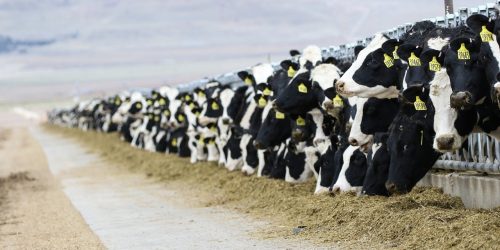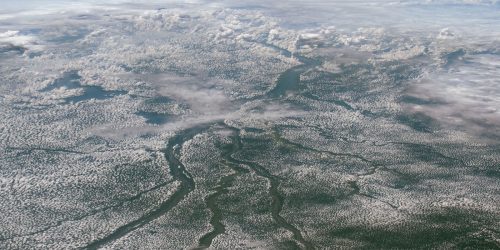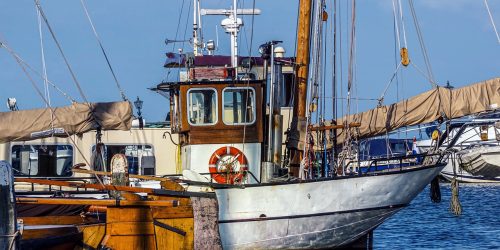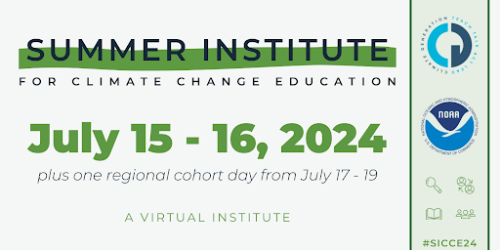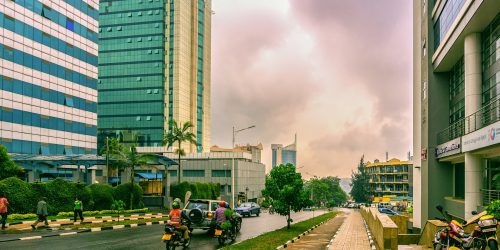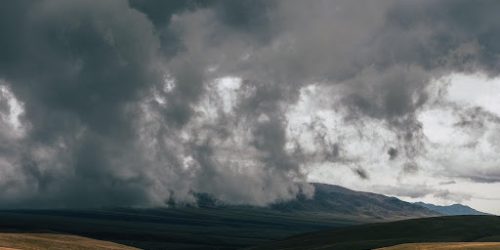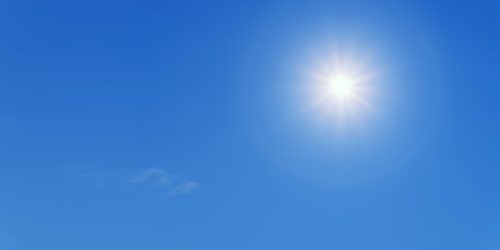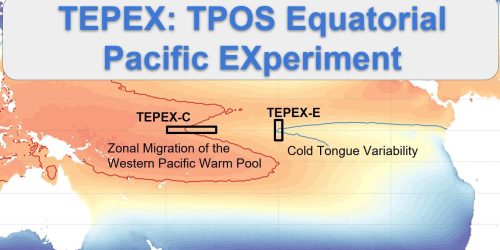NOAA’s Coastal and Ocean Climate Applications (COCA) Climate and Fisheries Program, in partnership with NOAA Fisheries’ Office of Science and Technology, has competitively awarded five new projects to support sustainable fisheries management in a changing climate. The new projects will assess implications for fish stocks, fisheries, and the communities and economies that depend on them. The roughly $5.8 million in grants and other awards cover a three-year time period.
Climate variability and change are affecting the nation’s valuable living marine resources and the people, businesses, and communities that depend on them.[1] These changes influence many conditions like extreme events, ocean temperatures, and coastal precipitation that directly and indirectly affect the abundance, distribution, and productivity of fish stocks that support economically important fisheries.[2] Ocean-related fishing and the seafood industry annually contribute approximately $212 billion in sales impacts, add $100 billion to the gross domestic product (GDP), and support over 1.7 million full- and part-time jobs across the broader economy.[3] [4] There is an increasing need for improved understanding of how climate, fishing, and other stressors interact to affect fish stocks (including their habitats and prey), fisheries, and fishing-dependent communities for sustainable fisheries management in a changing climate.[5]
To address this gap, the five new multidisciplinary projects funded by COCA, in partnership with the NOAA Fisheries Office of Science and Technology and the NOAA Fisheries Northeast Fisheries Science Center (NEFSC) New England Groundfish in a Changing Climate research program, will integrate climate, ecological, and socio-economic research to support and inform climate-resilient fisheries management. Support for these projects is part of a long-standing partnership between NOAA’s Climate Program Office (CPO) and the NOAA Fisheries Office of Science and Technology to advance understanding of current and future climate-related impacts on living marine resources and the communities that depend on them. This competition is part of a cross-CPO research initiative to address climate information needs related to marine ecosystems with the Climate Variability and Predictability (CVP) and Modeling Analysis Predictions and Projections (MAPP) programs.
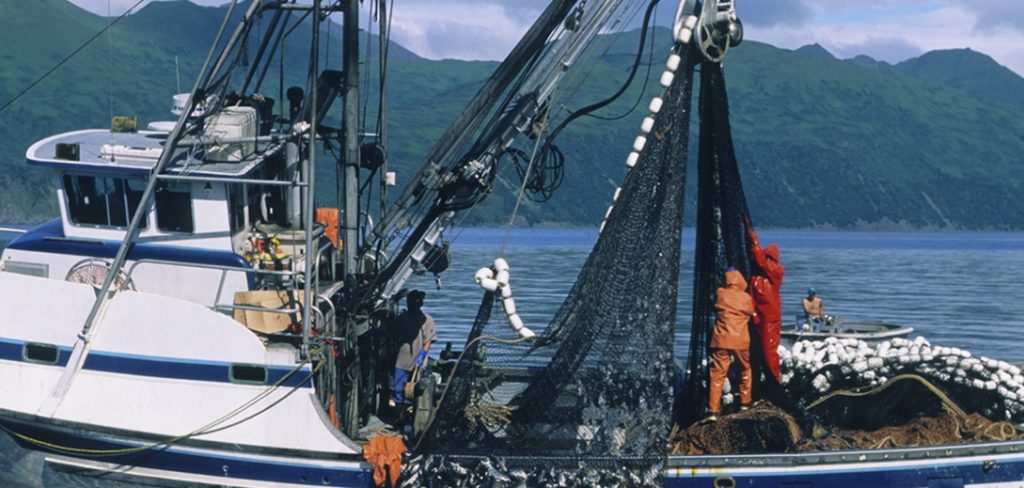
The five new funded projects are listed below.
- Physiology, climate change, and the ecosystem approach to fishery management in Northeastern Pacific ecosystems: improving the representation of functional group physiologies in end-to-end ecosystem models
Working in two large marine ecosystems, the Northern California Current and the coastal Gulf of Alaska, this project will examine the ecological and economic impacts of fishing effort and changing climate conditions to inform future management strategies in the two regions.- PI: Jim Ruzicka, Oregon State University, Cooperative Institute for Marine Resources Studies
- Co-PI: Elizabeth Daly, Oregon State University, Cooperative Institute for Marine Resources Studies
- From climate to communities in the Gulf of Alaska: using an integrated modeling approach to evaluate drivers of present and future system-level productivity and assess climate impacts on fishing-dependent communities
This research project will examine integrated modelling approaches to understand how fisheries management can support resilient fisheries in a changing climate and the economic impacts of climate on resource-dependent communities in the Gulf of Alaska.- PI: Martin Dorn, Alaska Fisheries Science Center
- Co-PIs: André Punt, University of Washington ; Beth Fulton, CSIRO Oceans and Atmosphere; Alan Hayni and Marysia Szymkowiak, Alaska Fisheries Science Center; Elizabeth McHuron, Cooperative Institute for Climate, Ocean, and Ecosystem Studies
- Impact of climate and ecosystem change on the California Current forage complex and the fishing communities and predators it sustains
This project will focus on the impacts of climate on the California Current Large Marine Ecosystem, and assess the vulnerability of protected species and economically important fish species in the region. The project will also support community-led efforts to understand management strategies informed by climate information and evaluated through shifting forage species composition, and varying predator populations.- PI: Desiree Tommasi and Barbara Muhling, University of California, Santa Cruz; Isaac Kaplan, Northwest Fisheries Science Center
- Co-PIs: Steven Bograd, Elliott Hazen, Michael Jacox, Stefan Koenigstein, Stephen Stohs, Northwest Fisheries Science Center; Jonathan Sweeney, Pacific Islands Fisheries Science Center
- Building pathways to resilience through evaluation of climate impacts, risk, and adaptation responses of marine ecosystems, fisheries, and coastal communities in the Bering Sea, Alaska
This project is focused on U.S. climate-resilient fisheries and coastal communities along the Bering Sea with an emphasis on key commercial fisheries as well as protected and subsistence harvest species in the region. The University of Washington/NOAA team will explore trade offs and evaluate the effectiveness of different adaptation strategies that support sustainable management.- PIs: Anne Hollowed, Kirstin Holsman, Alan Haynie and Jonathan Reum, Alaska Fisheries Science Center; André Punt, University of Washington
- Co-PIs: Wei Cheng, Al Hermann, Kelly Kearney, Elizabeth McHuron, and Darren Pilcher, University of Washington; Jeremy Sterling, Ingrid Spies, Paul Spencer, William Stockhausen, Cody Szuwalski, Sarah Wise, Ellen Yasumiishi, Kerim Aydin, and James Ianelli, Alaska Fisheries Science Center.
- Northeast climate integrated modeling to meet ocean decision challenges
This project will explore the development of an integrated framework to inform fisheries management decisions in the Northeast region of the United States. The framework will integrate climate, economic, ocean, and ecosystem modeling to explore future scenarios for key Northeast stocks and species that have demonstrated shifts in distribution and changes in productivity.- PI: Lisa A. Kerr, Gulf of Maine Research Institute
- Co-PIs: Andrew Pershing and Katherine Mills, Gulf of Maine Research Institute; Enrique N. Curchitser, Malin Pinksy, and John R. Wiedenmann, Rutgers University; Timothy J. Miller, Jonathan Deroba, and Vincent Saba, Northeast Fisheries Science Center
1 Fourth National Climate Assessment, Oceans and Marine Resources chapter https://nca2018.globalchange.gov/chapter/9/
2 Pershing, A.J., R.B. Griffis, E.B. Jewett, C.T. Armstrong, J.F. Bruno, D.S. Busch, A.C. Haynie, S.A. Siedlecki, and D. Tommasi, 2018: Oceans and Marine Resources. In Impacts, Risks, and Adaptation in the United States: Fourth National Climate Assessment, Volume II [Reidmiller, D.R., C.W. Avery, D.R. Easterling, K.E. Kunkel, K.L.M. Lewis, T.K. Maycock, and B.C. Stewart (eds.)]. U.S. Global Change Research Program, Washington, DC, USA, pp.353–390. doi: 10.7930/NCA4.2018.CH9.
3 National Marine Fisheries Service. 2018. Fisheries Economics of the United States, 2016. U.S. Dept. of Commerce, NOAA Tech. Memo. NMFS-F/SPO-187, 243.
www.fisheries.noaa.gov/resource/document/fisheries-economics-united-states-report-2016
4 Pershing, A.J., R.B. Griffis, E.B. Jewett, C.T. Armstrong, J.F. Bruno, D.S. Busch, A.C. Haynie, S.A. Siedlecki, and D. Tommasi, 2018: Oceans and Marine Resources. In Impacts, Risks, and Adaptation in the United States: Fourth National Climate Assessment, Volume II [Reidmiller, D.R., C.W. Avery, D.R. Easterling, K.E. Kunkel, K.L.M. Lewis, T.K. Maycock, and B.C. Stewart (eds.)]. U.S. Global Change Research Program, Washington, DC, USA, pp.353–390. doi: 10.7930/NCA4.2018.CH9.
5 Jason S. Link, Roger Griffis, Shallin Busch (Editors). 2015. NOAA Fisheries Climate Science Strategy. U.S. Dept. of Commerce, NOAA Technical Memorandum NMFS-F/SPO-155, 70p


